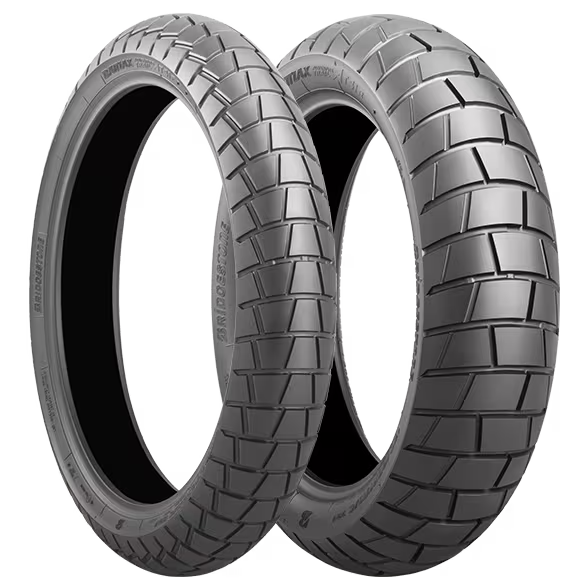Battlax Adventure Trail AT41
An 80% on-road / 20% off-road ADV tyre for riders who want a more aggressive tread design while maintaining great touring performance, enhanced wet traction on pavement, and light off-road capability.
The AT41 is positioned nicely between the on-road oriented Battlax Adventure A41 and the off-road oriented Battlax Adventurecross AX41.











